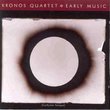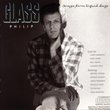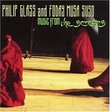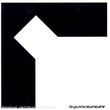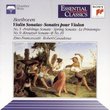| All Artists: Michael Riesman, Philip Glass Ensemble Title: Philip Glass: Glassworks Members Wishing: 1 Total Copies: 0 Label: Sony Original Release Date: 1/1/2003 Re-Release Date: 9/30/2003 Album Type: Extra tracks, Original recording remastered Genre: Classical Styles: Ballets & Dances, Ballets, Chamber Music, Historical Periods, Modern, 20th, & 21st Century, Symphonies Number of Discs: 1 SwapaCD Credits: 1 UPC: 827969039427 |
Search - Michael Riesman, Philip Glass Ensemble :: Philip Glass: Glassworks
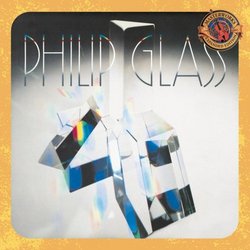 | Michael Riesman, Philip Glass Ensemble Philip Glass: Glassworks Genre: Classical
|
Larger Image |
CD DetailsSimilarly Requested CDs
|
CD Reviews"Glassworks" Remastered!!! Louie Bourland | Garden Grove CA | 05/23/2004 (5 out of 5 stars) "Composer Philip Glass broke new ground with his 1982 work "Glassworks". Besides being his debut for Sony Music (then CBS Records), "Glassworks" also became one of his best known compositions and is still his overall best-selling recording. There is a variety of mood and texture heard throughout "Glassworks" six movements. "Opening" is a pure solo piano piece which segues effortlessly into the second part "Floe" performed by Philip Glass's ensemble consisting of various keyboards, woodwinds and horns. Both "Floe" and "Rubric" (the fourth movement) are chock full of Glass's trademark fast-paced arppegiated rhythms, dense harmonics and consistantly shifting time signatures. The third and fifth parts ("Island" and "Facades" respectively) feature beautifully scored string sections aided by woodwinds along with slow repeated phrases. The "Closing" movement is simply a reprise of the opening except that it is scored for ensemble as opposed to solo piano. The remastered edition of "Glassworks" features superb sound quality and adds a renewed freshness to the original recording. There are also five bonus "Dance" pieces from Glass's 1986 work "In The Upper Room". These Dances also feature the composer's trademarks as well as great orchestration (especially "Dance IX" which features triumphant themes and variations). Overall, if you are familiar with the music of Philip Glass, you'll know exactly what to expect with this CD. For those unfamiliar and looking for a place to start, "Glassworks" is an essential introduction. Definitely Classic Minimalist Music at its Finest!!" An Essential Recording for MINIMALIST fans smokeyj628 | Decatur, GA USA | 12/13/2003 (5 out of 5 stars) "The orginal version of this CD is one of my very favorite Philip Glass Cd's, and I was excited to see it remastered. The remastering job is quite good....the levels of the instruments are much louder, and more importantly, you get much better separation of the instruments. I listened to it in the car and you could hear instruments coming in from every direction. In other words, a sonic improvement over the orginal.As for the songs themselves, "Opening", "Facades", and "Islands" are my favorites. In fact, I own a copy of the score of this album, and in it you see the intricate weaving of the instruments, the subtle building of Facades and Islands, and the excellent use of unorthodox chord choices. The music is unsettling on one level, and yet relaxing. It's fantastic.Philip Glass (especially during this early 80's era and before) does use repetition and slow buildups in his music. Although I can't imagine someone knowing of Glass and NOT associating him with such music, I advise anyone with a revulsion to minmalist music to steer clear. That being said, anyone with a taste for "modern" music, unusual chord choices, and wanting to learn more about Glass's style should pick up this CD. It's a good introduction. The bonus tracks (originally released on a separate CD) also give a taste for his writing for strings.And if you don't take my word for it, note that the original Glassworks CD is listed as an Amazon.com Essential Recording." The best Glass has ever sounded. Joel Henderson | Portland, OR United States | 08/16/2004 (5 out of 5 stars) "It came as a bit of a shock that I should stumble over a remastered version of one of my favorite Philip Glass pieces a mere month after I bought the original cd. Digital technology has progressed greatly since 1982 and Glassworks benefits greatly from it. Notable hiss on the Opening is now non- existant and Jack Kripl's flute is no longer harsh.
Fans of Glass's later works on the Nonesuch label may notice that Glassworks is also much louder than any of those recordings. Terrific!" |

 Track Listings (11) - Disc #1
Track Listings (11) - Disc #1
